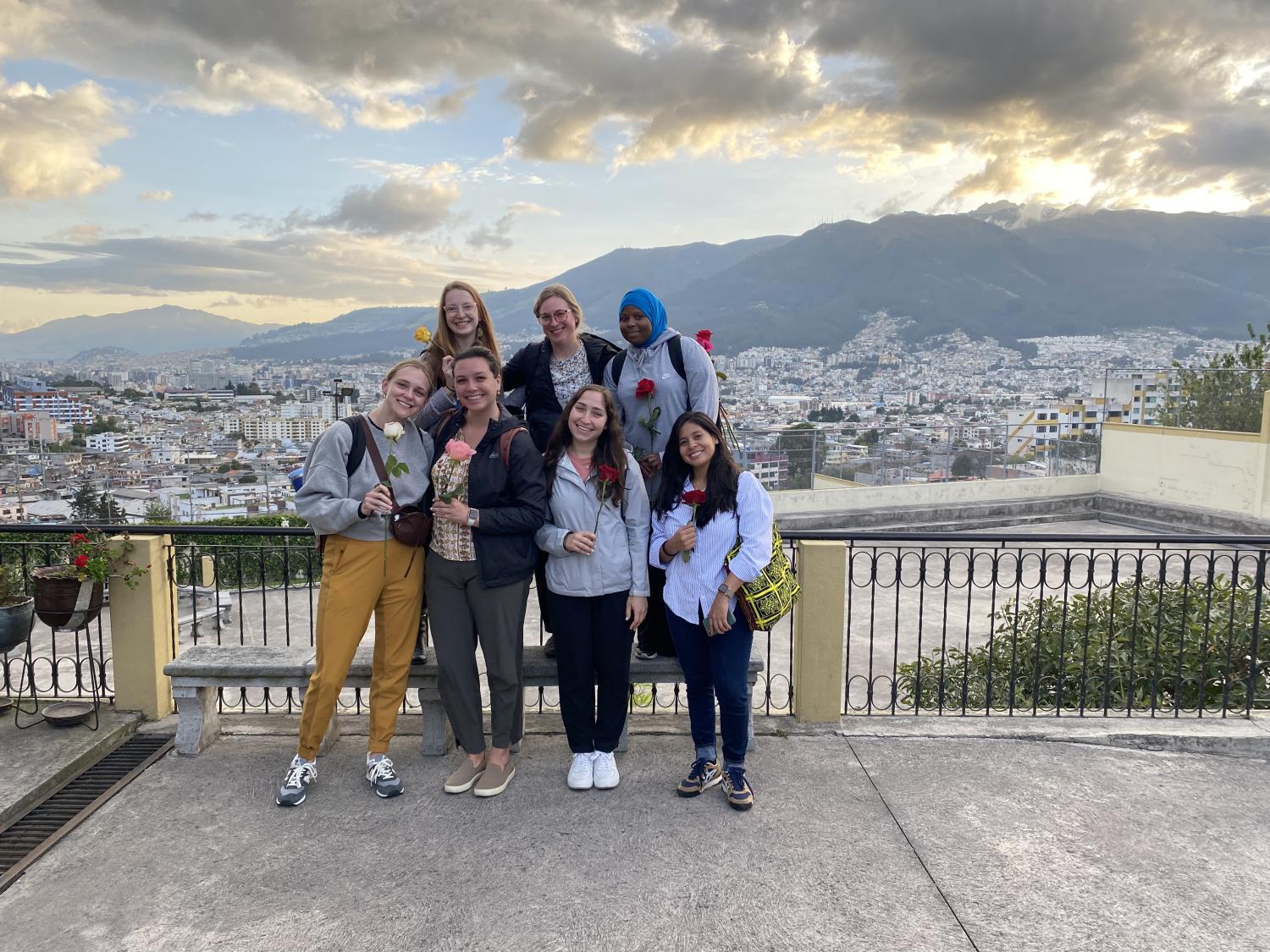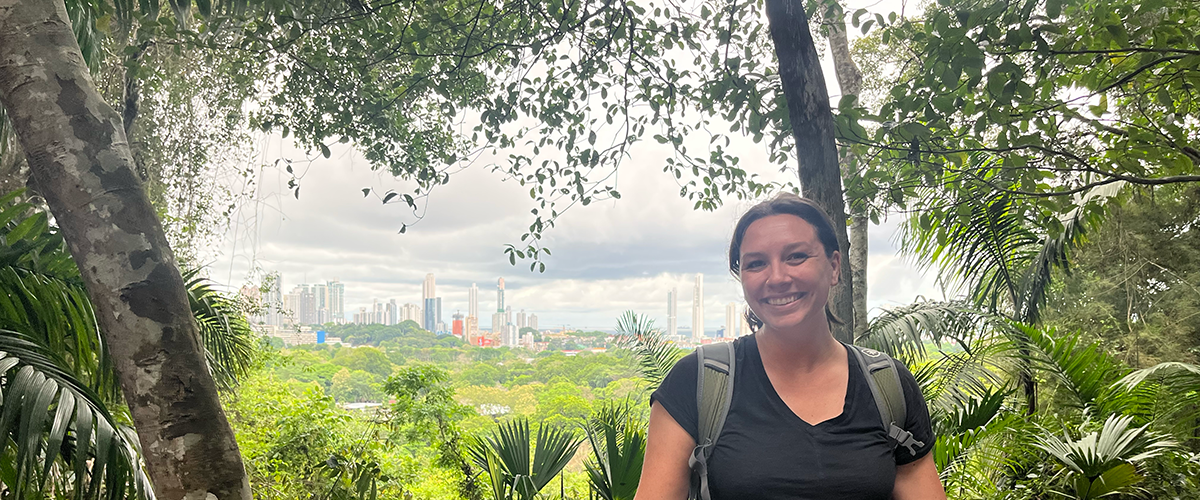A Trip to Ecuador: Two Weeks Studying Health and Culture in Quito
Leah Moat, MPH '21, traveled to Ecuador as part of CGHSR's Ecuador: Social, Environmental and Cultural Determinants of Health course.
Public health checked all the boxes for Leah Moat, MPH ‘21.
Moat, who received an MPH from the School of Public Health, gravitated towards the field’s ability to accommodate her diverse set of interests.
“I’ve always been interested in science, disease and health but also culture and language. Public health provided a way for me to not have to ever choose between those things because it’s so broad and multifaceted,” she said.
And on her recent trip to Quito, Ecuador, to study Latin America’s health systems, she was able to incorporate her broad skill set through a hands-on curriculum centered around bidirectionality in global health.
Moat traveled with a two-week course offered through the Center for Global Health and Social Responsibility: Ecuador: Social, Environmental, and Cultural Determinants of Health. The course’s curriculum, among other things, focused on the social determinants of health, Indigenous health and the effects of development on marginalized populations.
While Moat has spent a good amount of time in Latin America already – she was recently a fellow with the Centers for Disease Control and Prevention in Guatemala – the trip to South America offered new perspectives.
“There’s so much to be said for an awareness of the diversity of what public health looks like around the globe and what health needs are more prevalent in certain areas,” said Moat.
“The trip was a good reminder that there’s so much left to learn, even in the Latin American context – not to mention in every other part of the world.”
The course took place in May and is offered in partnership with Fundación Cimas del Ecuador, a non-governmental organization based in Quito. In addition to focusing on the diverse nature of global health – including the study of both urban and rural healthcare contexts – it also touched on Indigenous health practices.
Moat said the emphasis on designing healthcare systems with the patient in mind was a key takeaway. She said students visited a local hospital that created a space specifically designed for Indigenous midwives using items and decor related to the native population. That intentional design made Indigenous patients more comfortable engaging with the hospital, said Moat.
“Designing health systems with marginalized people in mind – whether it’s Indigenous people, migrants, women, the elderly – can be really impactful and address health equity,” she said.

Another highlight for Moat was visiting a flower farm to learn about the cut flower industry in Ecuador and its effect on health. The course’s on-site experiences nicely complemented its lectures; Moat said students would read about a certain issue and then visit a site to experience it first-hand.
She also appreciated the fact that all of the instructors were from Ecuador, providing students a local and authentic curriculum.
“A lot of values related to global health were represented in this course: solidarity, working with local experts and learning before suggesting solutions,” said Moat. “Those things were modeled in the course and, I think, important values for anyone working in the field of global health.”
